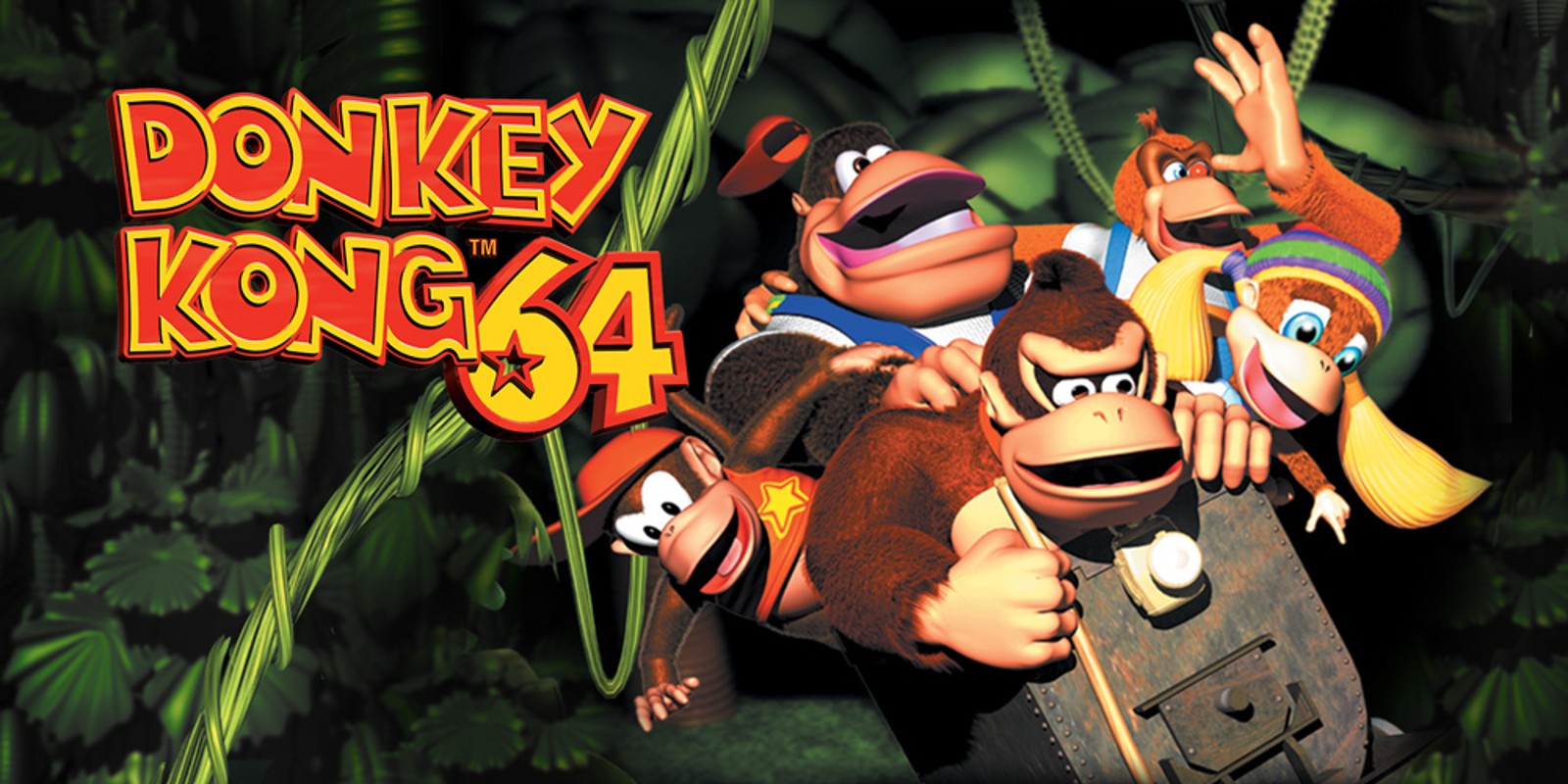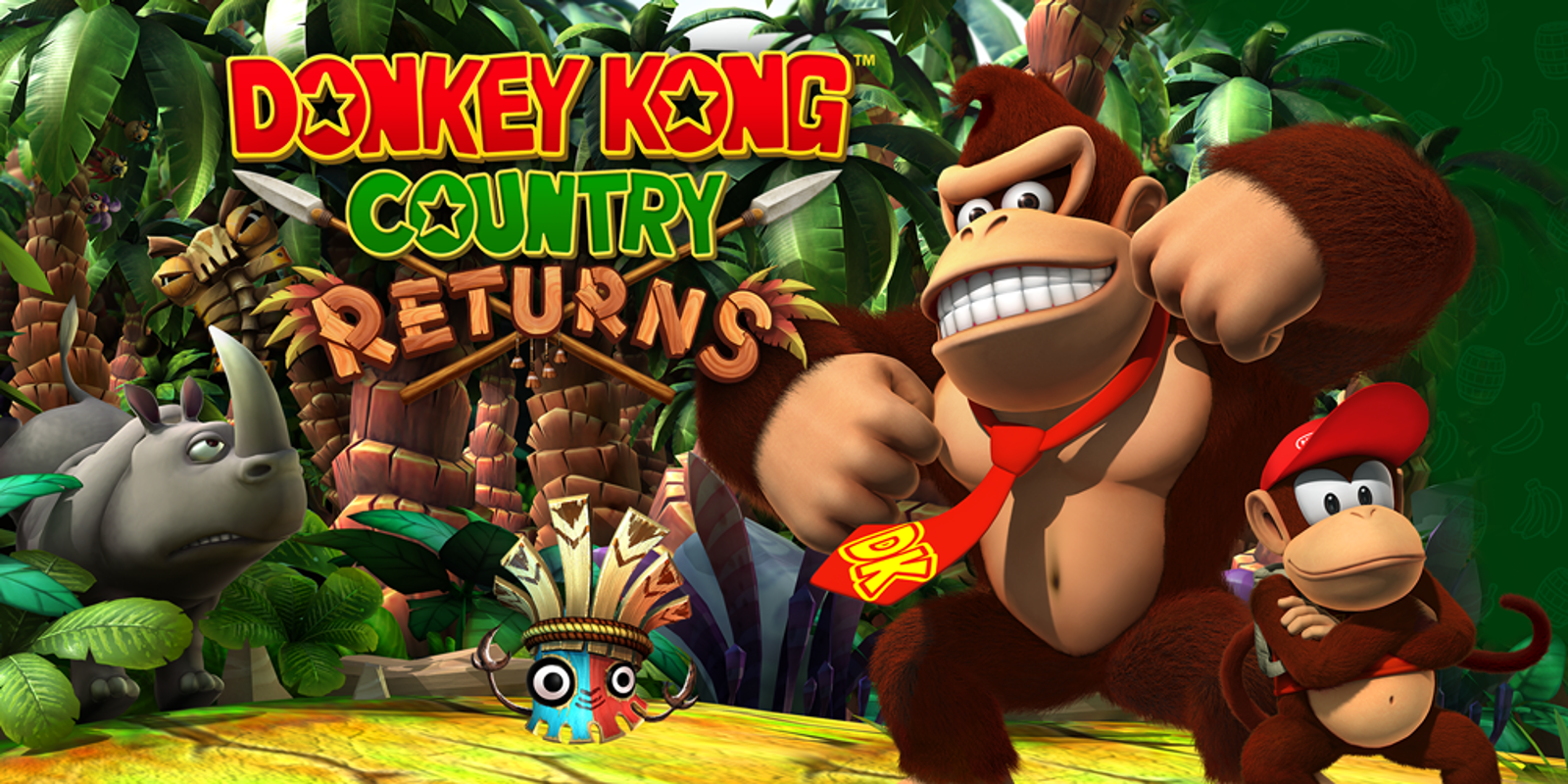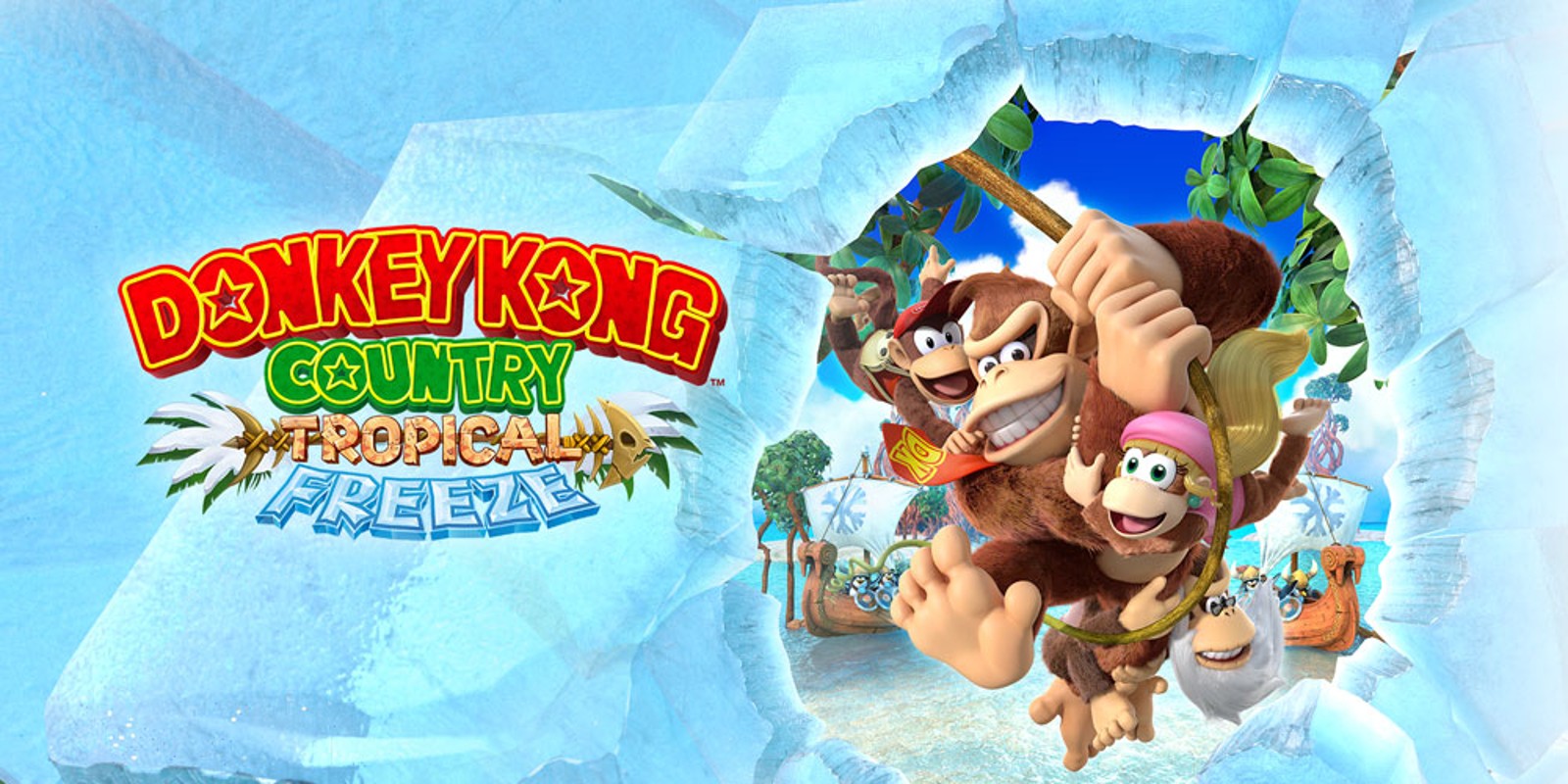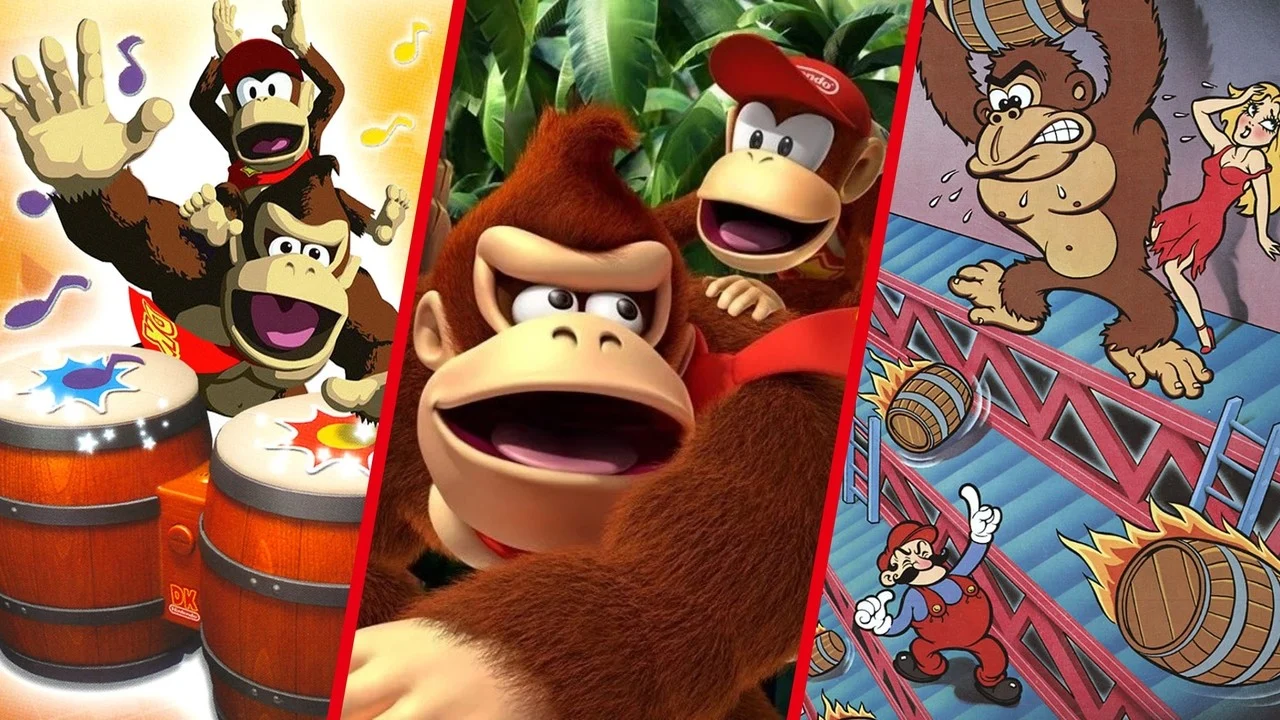Introduction
The world of video games is filled with iconic characters and timeless franchises, but few have left a mark as enduring as Donkey Kong. Created by the legendary Shigeru Miyamoto and first introduced in 1981, Donkey Kong has evolved from its arcade roots into a sprawling gaming franchise that spans generations. In this comprehensive blog, we’ll embark on a nostalgic journey through the history of the Donkey Kong franchise, exploring its origins, the evolution of its gameplay, the memorable characters it introduced, and the impact it has had on the gaming industry.

The Birth of Donkey Kong
To truly appreciate the Donkey Kong franchise, we must first travel back to the early ’80s when it all began. The year was 1981, and Nintendo was primarily known as a playing card company. That changed when a young and creative designer named Shigeru Miyamoto decided to take a risk and create a new type of arcade game. The result was Donkey Kong, a game that would lay the foundation for an enduring legacy.
The Original Arcade Classic
Donkey Kong featured a simple yet engaging premise. Players took on the role of Jumpman, later known as Mario, tasked with rescuing a damsel in distress, Pauline, from the clutches of the villainous Donkey Kong. The game introduced several groundbreaking elements:
- Multi-Level Gameplay: Donkey Kong was one of the first arcade games to feature multiple levels, each with its own unique challenges.
- Platforming Pioneers: It established the platforming genre, with players navigating Jumpman through barrels, platforms, and ladders.
- Mario’s Debut: Donkey Kong marked the debut of Mario, who would later become one of the most recognizable characters in gaming history.
The Success and Impact
Donkey Kong was an immediate hit in arcades, setting the stage for Nintendo’s transformation into a major player in the gaming industry. It also paved the way for a sequel, Donkey Kong Jr., which flipped the script by having players control Donkey Kong‘s son in an attempt to rescue the original Kong.
The Donkey Kong Country Revolution
While the original Donkey Kong arcade games remained beloved classics, the franchise truly found its footing on the Super Nintendo Entertainment System (SNES) in the 1990s. This era marked the birth of the Donkey Kong Country series, developed by Rare.

Donkey Kong Country (1994)
Donkey Kong Country was a groundbreaking game that utilized pre-rendered 3D graphics to create a visually stunning 2D platformer. It featured Donkey Kong and his sidekick Diddy Kong as they embarked on a quest to reclaim their stolen banana hoard from the villainous Kremlings, led by King K. Rool.
- Graphics and Sound: The game’s graphics were unparalleled at the time, boasting lush environments, detailed character animations, and a memorable soundtrack composed by David Wise.
- Unique Abilities: Each character had their own set of abilities, with Donkey Kong’s strength and Diddy Kong’s agility adding depth to the gameplay.
- Sequels and Expansions: The success of Donkey Kong Country led to two sequels, Donkey Kong Country 2: Diddy’s Kong Quest and Donkey Kong Country 3: Dixie Kong’s Double Trouble!, each building upon the foundation of the original.

Donkey Kong 64 (1999)
Donkey Kong 64 was a departure from the traditional platforming formula, instead offering a 3D collect-a-thon adventure. Players controlled Donkey Kong and his friends as they collected items and completed various challenges to thwart King K. Rool’s plans.
- Expansive Worlds: The game featured multiple expansive worlds to explore, each filled with secrets and challenges.
- Playable Characters: In addition to Donkey Kong, players could take control of Diddy Kong, Tiny Kong, Lanky Kong, and Chunky Kong, each with their unique abilities.
- Expansion Pak: Donkey Kong 64 was one of the first games to require the Nintendo 64 Expansion Pak, which enhanced the console’s memory and allowed for more detailed graphics.
Donkey Kong’s Expanding Universe
During this period, Donkey Kong’s universe expanded with spin-off games like Diddy Kong Racing, a kart racing game featuring characters from the Donkey Kong series, and Donkey Konga, a rhythm game that utilized a unique bongo controller.
Donkey Kong in the Modern Era
The Donkey Kong franchise continued to evolve in the 2000s and beyond, remaining a beloved part of Nintendo’s gaming lineup.

Donkey Kong Country Returns (2010)
Donkey Kong Country Returns marked the return to the series’ 2D platforming roots. Developed by Retro Studios, this game brought the classic formula to the Nintendo Wii, introducing new mechanics and challenges while retaining the spirit of the originals.
- Cooperative Play: The game featured cooperative multiplayer, allowing a second player to control Diddy Kong.
- Challenging Levels: Donkey Kong Country Returns was known for its challenging level design, testing the skills of even the most experienced players.

Donkey Kong Country: Tropical Freeze (2014)
The follow-up to Donkey Kong Country Returns, Tropical Freeze, continued the tradition of challenging platforming while introducing new gameplay elements and playable characters.
- New Characters: Players could now take control of Dixie Kong and Cranky Kong, each with their unique abilities.
- Dynamic Levels: The game’s levels featured dynamic elements like moving platforms and changing environments.
Donkey Kong in Super Smash Bros.
Donkey Kong has been a staple character in the Super Smash Bros. series, further cementing his status as a gaming icon. His inclusion in these crossover fighting games allows fans to play as their favorite ape and battle against other legendary video game characters.
0Donkey Kong’s Enduring Legacy
Donkey Kong‘s enduring legacy is not only evident in the continued success of the franchise but also in its influence on gaming as a whole.
Donkey Kong and the Platforming Genre
Donkey Kong played a pivotal role in popularizing the platforming genre, setting the stage for other iconic franchises like Super Mario and Sonic the Hedgehog. The original Donkey Kong arcade game introduced the concept of navigating a character through multiple levels, dodging obstacles, and defeating enemies.
Iconic Characters
The Donkey Kong franchise has introduced players to a cast of memorable characters beyond just Donkey Kong and Mario. Diddy Kong, Dixie Kong, King K. Rool, and Cranky Kong have all become beloved figures in their right, enriching the Nintendo universe.
Inspiration for Game Design
Donkey Kong‘s innovative design elements, such as multi-level gameplay and diverse environments, have inspired countless game designers and developers. Many modern platformers owe a debt of gratitude to the groundbreaking concepts introduced in Donkey Kong.
Donkey Kong in Popular Culture
Donkey Kong‘s impact extends beyond the gaming world. The character has appeared in various forms of media, including animated series, comics, and even as an antagonist in the “King of the Hill” TV show.
Conclusion
As we conclude our exploration of the Donkey Kong gaming franchise, it’s clear that this beloved series has left an indelible mark on the world of video games. From its humble arcade beginnings to the groundbreaking Donkey Kong Country series and beyond, Donkey Kong has continued to captivate players with its charming characters, challenging gameplay, and enduring appeal.
Through innovation, iconic characters, and a commitment to quality, the Donkey Kong franchise has not only stood the test of time but has also helped shape the gaming industry. As long as there are gamers eager for new adventures and classic platforming challenges, Donkey Kong will remain a beloved and essential part of the gaming landscape, inviting both old and new players to swing into action and join the adventure.
In a world filled with ever-evolving gaming franchises, Donkey Kong’s enduring presence serves as a testament to the magic that can happen when creativity, innovation, and a touch of nostalgia come together to create something truly special. So, whether you’re a long-time fan or just discovering the joy of barrel-rolling and banana-collecting, there’s always a place for Donkey Kong in the world of gaming.


